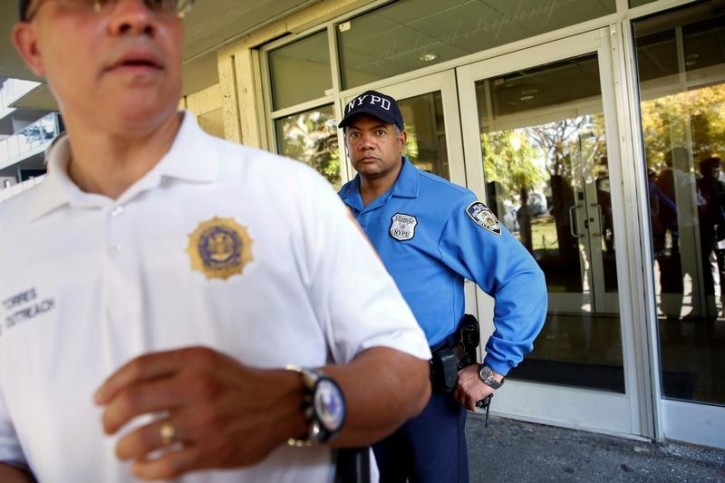
New York – In a searing, eloquent essay on living with schizophrenia, Deborah Danner agonized over the deaths of mentally ill people like her at the hands of police.
Less than five years later, she became part of that toll. A police sergeant, called because Danner was in distress, fatally shot her Tuesday in her Bronx apartment after she went at him with a baseball bat, police said.
With the mayor saying the sergeant failed to follow his training in handling mentally ill people, Danner’s death seems to echo a scenario she dreaded in a 2012 essay.
“We are all aware of the all too frequent news stories about the mentally ill who come up against law enforcement instead of mental health professionals and end up dead,” she wrote.
Danner called for “teaching law enforcement how to deal with the mentally ill in crisis,” training the city has emphasized in the last two years.
Police have been looking into why Sgt. Hugh Barry didn’t use a stun gun or call for specially trained emergency service officers. Bronx prosecutors announced Thursday they’ll investigate.
Although investigators haven’t reached conclusions, Democratic Mayor Bill de Blasio branded the shooting “unacceptable” and said the situation didn’t appear to merit the use of deadly force, while sergeants’ union president Ed Mullins described the shooting as self-defense.
It wasn’t Danner’s first interaction with police, who had safely taken her to hospitals during previous psychiatric episodes, de Blasio said.
Still, memories of lethal encounters between police and people in psychological crisis weighed on her. Her essay alludes to the case of Eleanor Bumpurs, a Bronx woman killed in 1984 after waving a knife at officers during an eviction.
Danner saw the story as a stark example of insufficient police training. And, perhaps, it held a thread of personal connection: Both women were 66, were black and had histories of mental illness.
For Danner, that illness was an ever-lurking force of self-doubt, depression, isolation and flashbacks to bad moments, she wrote in her essay, first reported by The New York Times.
“I experience it as a need for constant vigilance” for any signal of a descent toward the behavior that spurred her to change clothes in a public restroom so an unspecified “they” couldn’t track her and to look for a public place to kill herself, she wrote. She said she’d been sick since her late 20s and had been hospitalized several times.
Relatives, she wrote, had kept their distance or acted maliciously. Her sister, however, was at her building to accompany her to a hospital when she was killed.
“My sister’s life was taken because she was ill,” Jennifer Danner said on Wednesday.
U.S. police departments have struggled with how to train officers on responding to emotionally disturbed people, said Chuck Wexler, who heads the Washington-based Police Executive Research Forum.
In New York, a highly trained Emergency Service Unit often responds, but the city has tried to give all patrol officers updated training on recognizing signs of mental illness and understanding how people in crisis might act and react to police.
“In these situations, slowing it down, using communication skills, using time and distance, is a very important factor,” Wexler said.
City officials have said Barry recently took training and persuaded Danner to drop a pair of scissors before she tried to hit him with the bat.
Danner gave her essay last year to attorney Charles J. Hargreaves, who represented her in a case that gave her sister guardianship of her, he said.
“She wanted to be seen as a whole person, not just a schizophrenic, not just a diagnosis. And she really was that whole person,” who loved books and enjoyed sketching people in a local park, he said Thursday.
For all her struggles, Danner, who was appealing the guardianship ruling, wrote that she had found support through a church and from a therapist.
“I smile rarely,” Danner wrote, “but I am surviving.”
As reported by Vos Iz Neias
